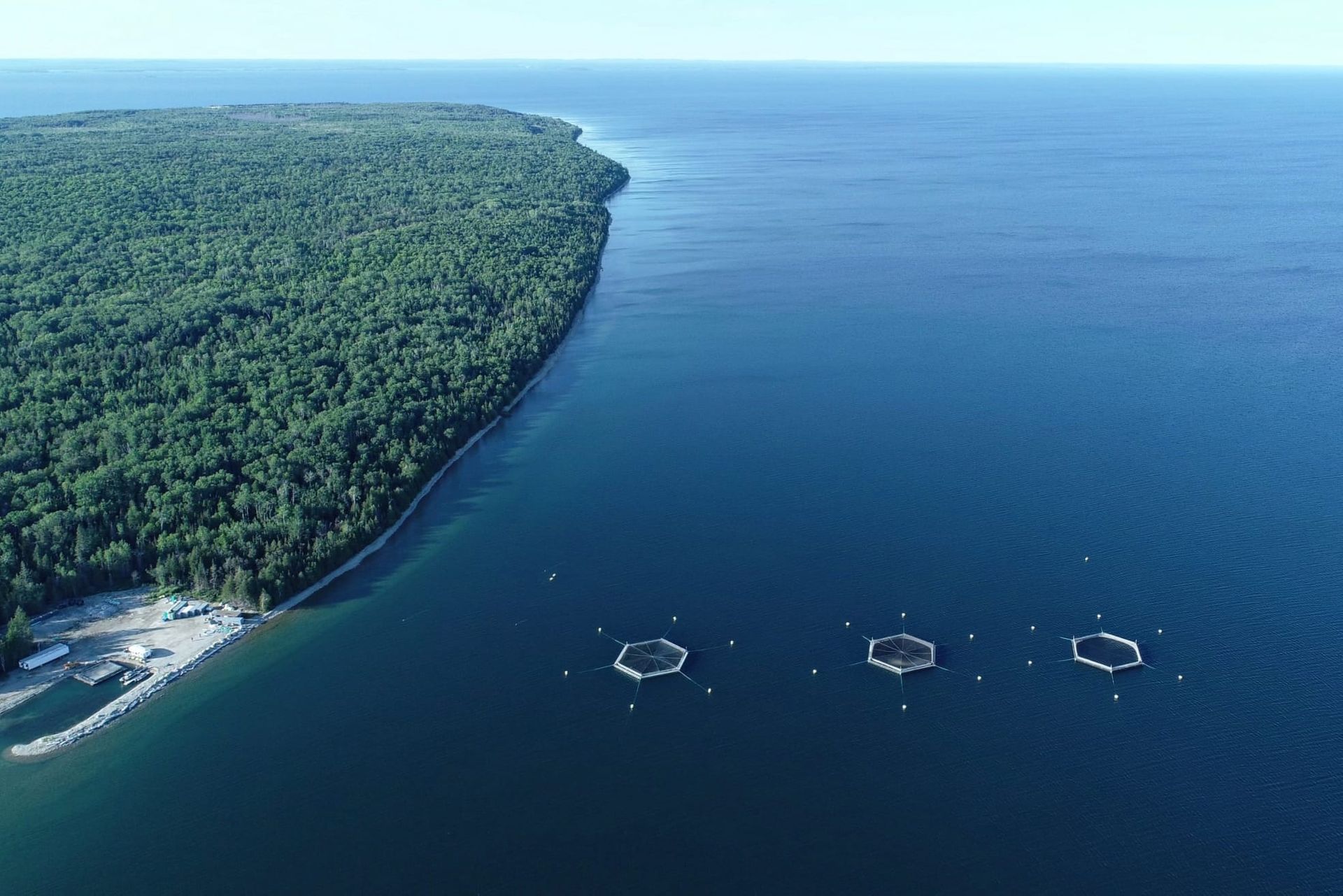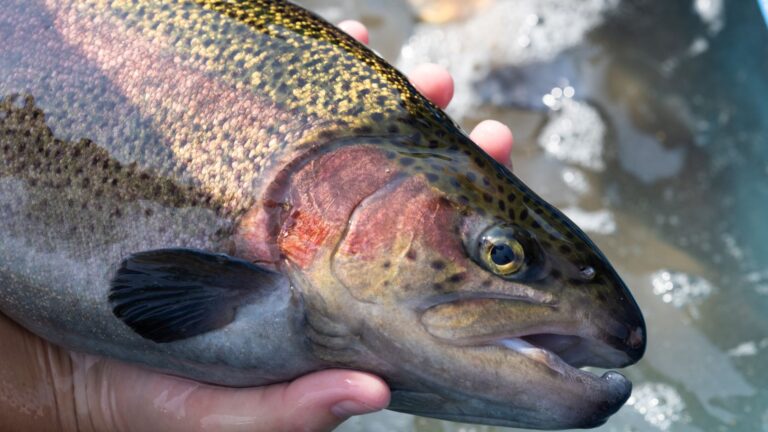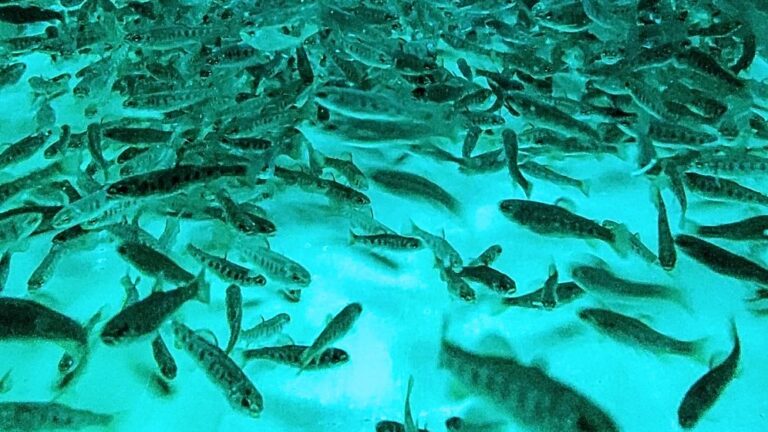
You may have heard the term “regenerative agriculture” to describe farms that help fix the planet.
Well fish farms in Lake Huron are an example of “regenerative aquaculture”, because studies keep showing they help fix the lake.
A 12-year study from Lakehead University and Fisheries and Oceans Canada showed that floating farms can increase wild lake trout in Lake Huron. Scientists at the University of Guelph School of Environmental Sciences are also confirming this with their own tests
The fish manure that many think is bad actually feeds the critters at the bottom of the food chain… and those nutrients are desperately needed in Lake Huron.
The lake is “ultra-oligotrophic”, meaning there isn’t enough in the food chain to support a thriving ecosystem. That’s why biologists call Lake Huron a “biological desert” owing to a century of invasive species and human activity.
That DFO study showed that lake trout populations doubled after five years of a farm operating in an experimental lake similar to Lake Huron. With additional nutrients, first the macroinvertebrates and zooplankton thrived, then eventually the smaller and bigger fish too. More critters at the bottom of the food chain meant there are more food for those at the top!
In the last two years scientists at the University of Guelph have analyzed stable isotope and fatty acid signatures (referred to as biotracers) in the wild fish to look for evidence that these fish ultimately benefit from aquaculture inputs around farms in Lake Huron. They came to similar conclusions that fish farms could have a positive effect on local fish communities.
“Like the Experimental Lakes Area study, our biotracer analysis supports the hypothesis that local wild fish, especially pelagic fish such as cisco and lake trout, could benefit from the presence of fish farms by incorporating excess feed into their diets,” said Dr. Neil Rooney, from U of G’s School of Environmental Sciences. “The strongest evidence of these energetic subsidies was found in Parry Sound, whereas signals were weaker around the North Channel operations.”
Just like cows patties and sheep dung nourish the land, fish nourish the sea.
And what about viruses or sea lice transferring to wild fish? Well we are very fortunate in the Great Lakes that we don’t have many of these things to worry about, in part because they don’t live in fresh water and also because it gets so cold nothing survives anyways
That doesn’t mean we should put fish farms everywhere, or put as much nutrients as we can into the lake. It’s very important that we don’t overload nutrients in one place that can cause nuisance algae, like a bay with very little water exchange.
That’s why we do such rigorous water testing and ecological studies, and also why regulators ensure we do plenty of environmental testing before a new farm goes in. If a farm is located strategically in fresh water lakes like Huron, they can be a tool for regenerating ecosystems.
So if we want more wild fish, let’s get more fish farms!

